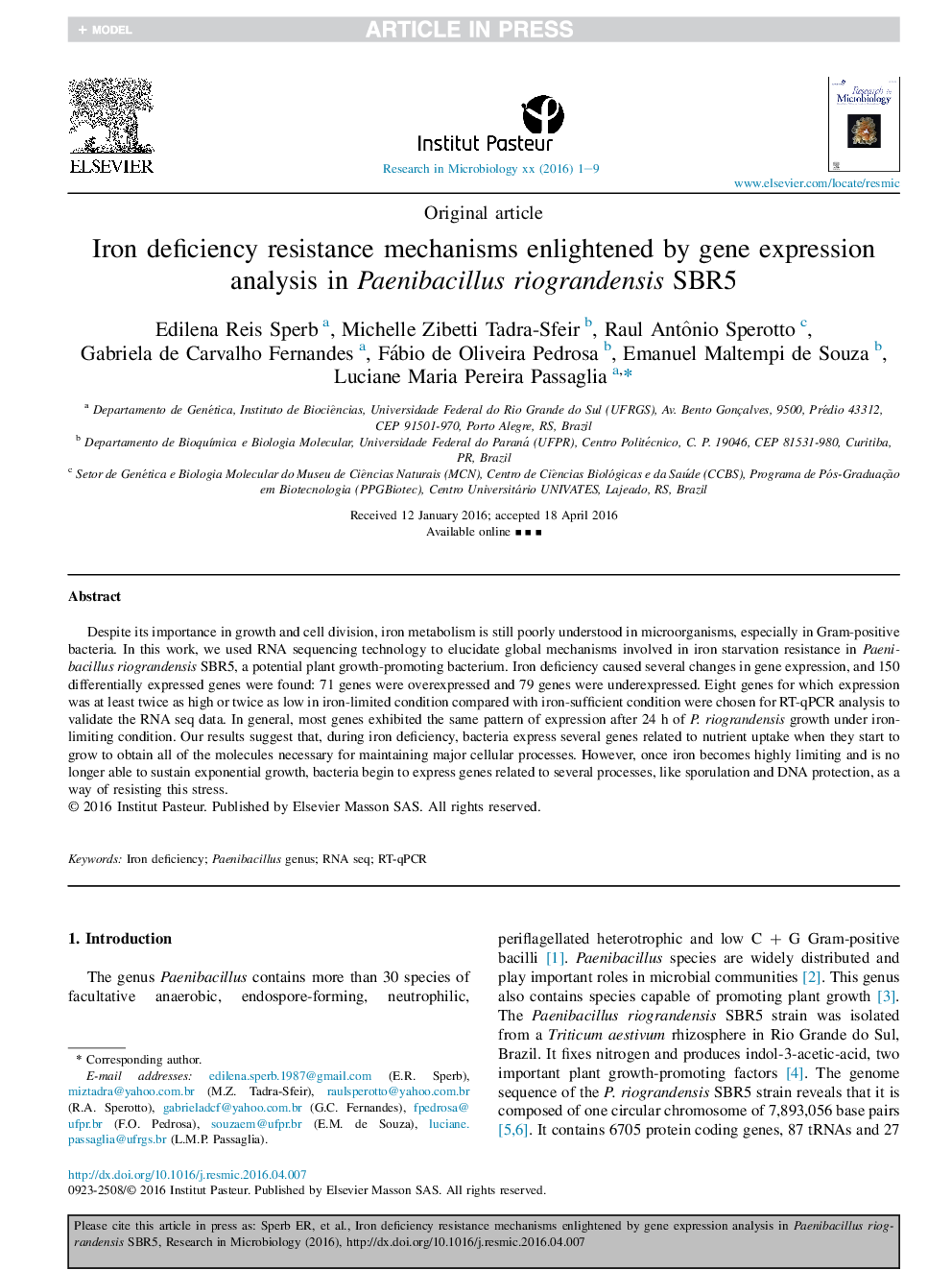| Article ID | Journal | Published Year | Pages | File Type |
|---|---|---|---|---|
| 6288039 | Research in Microbiology | 2016 | 9 Pages |
Abstract
Despite its importance in growth and cell division, iron metabolism is still poorly understood in microorganisms, especially in Gram-positive bacteria. In this work, we used RNA sequencing technology to elucidate global mechanisms involved in iron starvation resistance in Paenibacillus riograndensis SBR5, a potential plant growth-promoting bacterium. Iron deficiency caused several changes in gene expression, and 150 differentially expressed genes were found: 71 genes were overexpressed and 79 genes were underexpressed. Eight genes for which expression was at least twice as high or twice as low in iron-limited condition compared with iron-sufficient condition were chosen for RT-qPCR analysis to validate the RNA seq data. In general, most genes exhibited the same pattern of expression after 24Â h of P. riograndensis growth under iron-limiting condition. Our results suggest that, during iron deficiency, bacteria express several genes related to nutrient uptake when they start to grow to obtain all of the molecules necessary for maintaining major cellular processes. However, once iron becomes highly limiting and is no longer able to sustain exponential growth, bacteria begin to express genes related to several processes, like sporulation and DNA protection, as a way of resisting this stress.
Keywords
Related Topics
Life Sciences
Immunology and Microbiology
Applied Microbiology and Biotechnology
Authors
Edilena Reis Sperb, Michelle Zibetti Tadra-Sfeir, Raul Antônio Sperotto, Gabriela de Carvalho Fernandes, Fábio de Oliveira Pedrosa, Emanuel Maltempi de Souza, Luciane Maria Pereira Passaglia,
